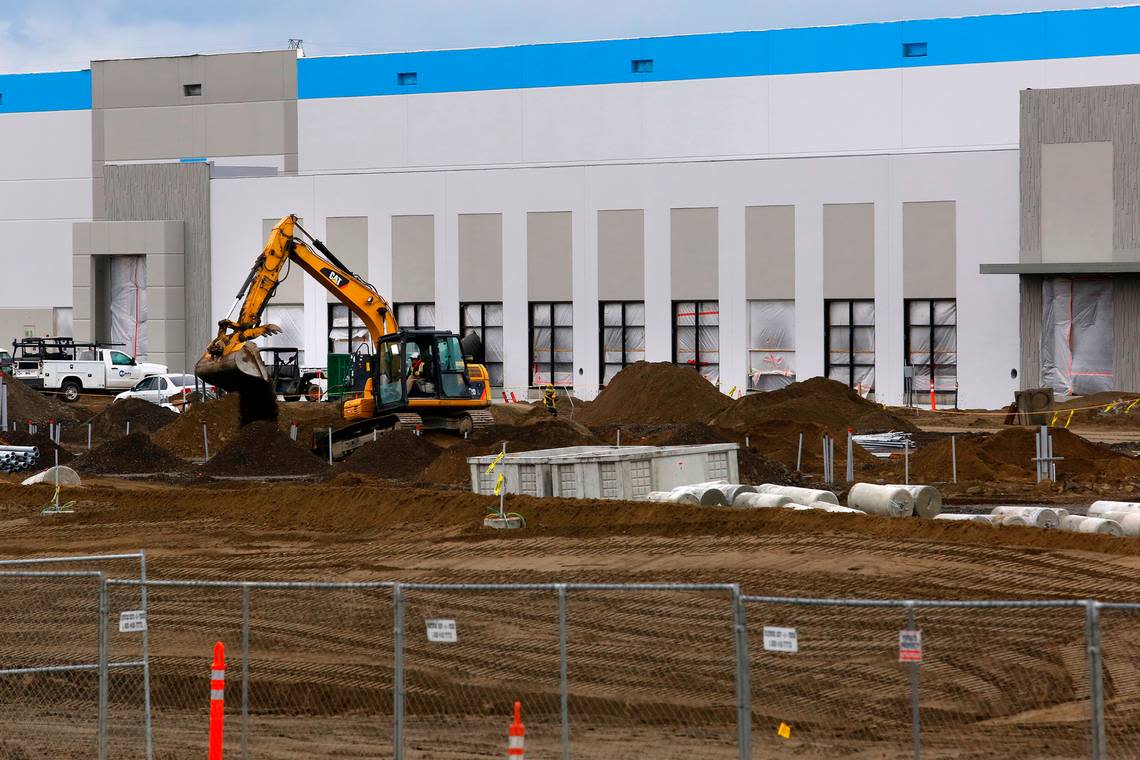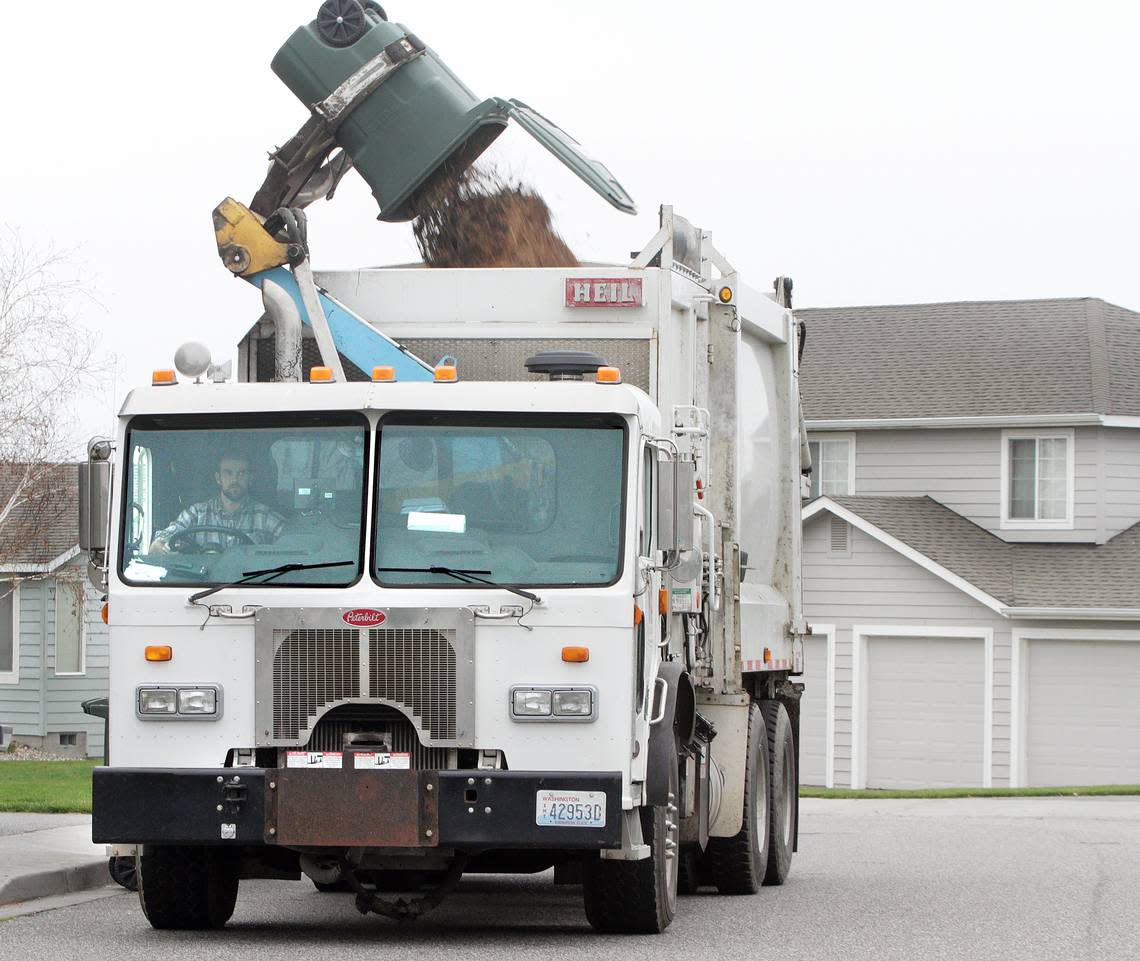How Richland helped build the Amazon center in Pasco by trimming trees, flushing toilets
There’s a lot that’s unknown about the massive Amazon distribution centers in Pasco.
The Seattle e-commerce giant hasn’t disclosed when it will put the newly built facilities near Sacajawea State Park into use.
In February, it confirmed it had started hiring for key positions. And March brought a fresh round of layoffs for the company’s 1.5 million-strong workforce, chiefly in its corporate and tech ranks.
But at least the mystery of its ample green spaces and landscaping is solved: The project was built atop compost produced by city of Richland from yard waste and wastewater solids, aka sanitized poop.
“Last year, were surprised when a contractor working for Amazon wanted everything we could give them. They bought us out,” said Pete Rogalsky, Richland’s public works director.

Saving landfill space
Richland began composting the yard waste it collects in green bins with wastewater solids from its sewage treatment plant about 11 years ago to keep useful materials out of the landfill.
It sells it by the truckload to regional processors who repackage it and sell it to nurseries and to home improvement stores.
Homeowners can buy up to four yards of compost for $25 at the landfill, 3102 Twin Bridges Road.
It isn’t too surprising a developer would seek compost for the two Amazon sites, where the development included sizable retention ponds, grassy areas and planting hundreds of trees in the vast parking lots.

The Tri-Cities sit atop basalt topped by sandy soils that don’t support lush vegetation and landscapes. Compost is the key to nurturing local landscapes when used correctly.
Rogalsky said the city makes no money from its compost business, but diverting yard waste and sewer plant byproducts into compost preserves landfill space discards that are truly garbage.
Yard waste and biosolids
To make compost, the city combines ground up yard waste with treated biosolids from its sewage treatment plant.
The mix of plant waste and sewage is piled on a 14-acre paved lot at the landfill, aerated to promote the bacterial process of breaking it down, and left to its own devices for several months.
Heat and time work their magic to transform it into a product that is safe for the public to handle.
Samples are sent for laboratory testings to comply with requirements of the US Composting Council.

Rogalsky said regional customers haul off truckloads of the compost. It has a smaller pile at the landfill where residents can collect what the need and pay a small fee.
In general, the city produces more compost than it can sell.
Amazon reduced the inventory, but Rogalsky said composting is a continual process and the city can accommodate everyday requests. But if another Amazon came along, it wouldn’t be able to serve it, he said.
The city-generated compost will come in handy when Richland caps an area of the landfill that is closed. It will spread compost over the top to encourage vegetation across the 30-acre surface to help control erosion.
Learn more about the compost program and read test results at the city’s compost page.
